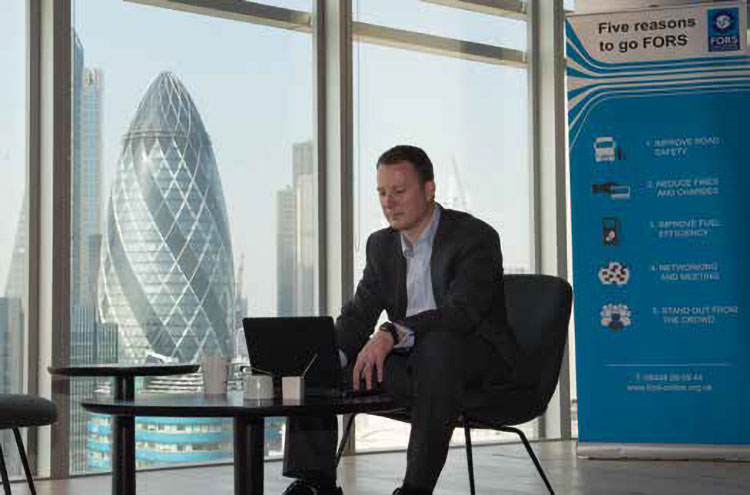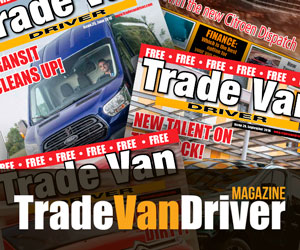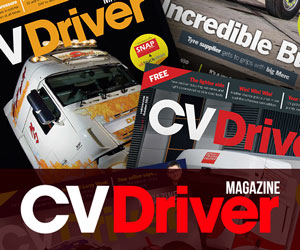
In a recent interview with commercial vehicle hire specialist, Enterprise, FORS Business Services Manager, Paul Wilkes provided some insightful views on FORS’ plans for the future. The Standard listened in.
Q: Is FORS planning on expanding into different cities? If so, which ones?
We get asked this question a lot and there appears to be a lot of confusion in this area, with many believing that FORS is purely London-based due to its Transport for London (TfL) origins. FORS is actually a national scheme and we already have 65% membership from outside of London, and we’re looking to expand the uptake of FORS even further.
We have done a lot of work with Newcastle and the North East Freight Partnership.
We have also done a fair amount of work around Manchester and Birmingham. We are involved in a number of discussions on city projects and we also provide information to operators, offering workshops in major cities to explain what FORS is and the benefits of accreditation.
Q: Is FORS working towards a uniform vehicle safety specification?
We have standard vehicle requirements within the FORS Standard, which align to London’s Safer Lorry Scheme requirements at Bronze and the CLOCS Standard (for vehicles delivering to construction sites) as well as TfL’s Work Related Road Risk policy at FORS Silver. We are in discussions with manufacturers and leasing companies to ensure that they are aware of what operators require at each level of the FORS Standard.
Q: What are the latest WRRR updates to the FORS accreditation?
With lots of construction projects, road space is at a premium and it is only going to get worse
Our last update focuses on environmental issues in addition to WRRR. There are a number of simple steps that operators can take to reduce their emissions and we have provided tools to allow them to understand the impact of their operation. For example, we have an online spreadsheet that allows operators to calculate their carbon footprint and we provide toolkits that address the environmental and commercial benefits of issues such as anti-idling and reducing stop/starts.
FORS Gold accreditation also includes a requirement for companies to consider a modal shift to using either rail or boat.
This is a big step-change and reflects the current policy shift. For example, in London we are seeing a huge focus on trying to make better use of the waterways, and the same is happening in Manchester. With lots of construction projects, road space is at a premium and it is only going to get worse.
Finally, we are looking into alternative-fueled vehicles. Over the next six months we are hoping to pull together all the available information to provide fleets with a thorough overview of the technology that exists, how it may help them, what savings can be made and whether funding is available. (For example, the Plug-In Van scheme has now been extended to trucks and there is up to £20,000 available for vehicles over 3.5 tonnes).
There are also other solutions that we are looking into to offset carbon footprints, where companies invest in infrastructure in another country that can significantly reduce carbon emissions, and that are much more effective than simply planting more trees in a rainforest somewhere.
Q: What are the commercial incentives for FORS accreditation?
The main commercial incentive for FORS accreditation is that companies can access high profile or lucrative work contracts that often require FORS accreditation as a means of ensuring quality control.
FORS is a national scheme and we already have 65% membership from outside of London, and we’re looking to expand the uptake of FORS even further
Another big driver is the training and support that is offered for free to our members. Drivers can access the Safe Urban Driving course for trucks and public service vehicles, where drivers experience a cyclist’s view of the road and are taught how to deal with vulnerable road users.
FORS also offers a Driver CPC accredited Staying Legal course for truck drivers to help them understand the operator licence requirements and in particular those that can be affected by driver behaviours. For van drivers, we have Van Smart driver training, which has a theory module aimed to help drivers to become safer, more diligent and defensive drivers. This also includes a practical module, which gets drivers in the saddle to improve awareness and provide driving techniques when around vulnerable road users.
Managers have access to a course based on maintaining their ‘O’ Licence to provide a refresher course on how to manage a fleet of CVs over 3.5 tonnes. We also provide the FORS Practitioner which offers nine fleet management workshop classes that cover everything that logistics and health and safety managers need to know when running a commercial fleet in line with the FORS Standard.
FORS members can also access offers and discounts from around 90 FORS Associate companies who provide products and services that help meet the standards.
Q: There was a lot of discussion at the Freight in the City Expo on whether a carrot or stick approach works best for operators. What are your views on this?
One of the reasons FORS exists is that it wasn’t clear to what standards operators needed to adhere. FORS worked with operators and specifiers to create a single set of requirements supported by training to ensure that operators could not just remain legally compliant but also could improve their safety, efficiency and reduce their environmental impact.
The FORS Standard is what we measure all of our members against and they are audited to ensure they remain compliant. Some operators use the FORS Standard to help them raise the performance of their operations. They benefit from being able to demonstrate to their customers that they are meeting an independently verified standard. For some operators this works well, as they want to do what is required to meet a contract.
At the same time, there are some operators who want to continue to improve their operations and set the bar for new best practice, and FORS can help them with this.





